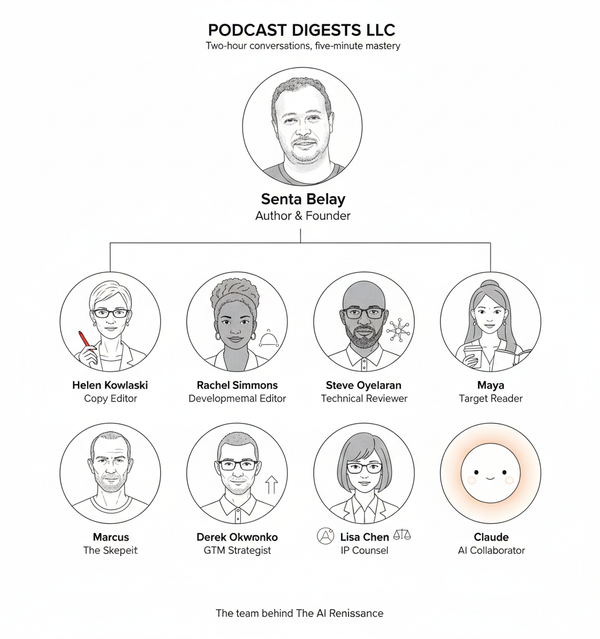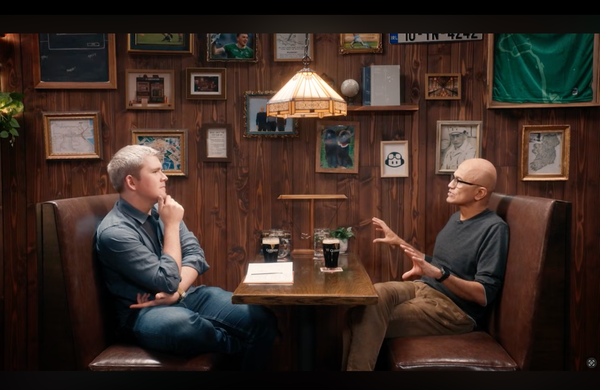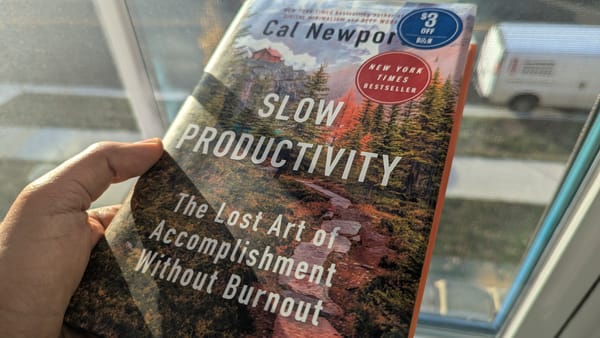Yes, Einstein Would Have Used AI - And Here's What That Means for You
AI generated
If Einstein had access to today’s AI, would he have used it?
The purists say no. They imagine him in a quiet Bern office, chalk dust on his fingers, needing nothing but thought experiments and the expanse of his own mind.
But they're missing the point of who he was.
This is the same man who said, “Imagination is more important than knowledge.” You think he’d pass on a tool that could instantly prototype a thought experiment or simulate a gravitational lens? Not a chance.
Einstein wasn’t just a scientist. He was a question-asker. A system challenger. Someone who looked at the ordinary and asked, What’s really going on here? That’s the spirit he lived in. And it’s the spirit AI, at its best, invites us into.
Not to just know more. But to think more deeply. To wonder more freely. To create from places we didn’t know we could reach.
Because the truth is, the game has changed.
Recently, someone introduced me to Replit. With just a couple of prompts and an idea, I built a working, live website in a few hours.
Let that sink in. A project that normally would have involved weeks of back-and-forth with a developer, draining time and money, was finished in a single afternoon. This isn't just about efficiency. It’s about closing the gap between thought and creation. It’s a fundamental shift in what an individual is capable of.
And you don’t have to be a genius to use it. You just have to be willing to explore.
But here's where it gets messy, because once you realize the power in your hands, a new kind of fear creeps in.
Am I smart enough for this world? What should I be doing with this tool? How do I keep up when the ground is shifting under my feet?
Here’s the thing most people miss: You don’t need to become a machine to work with one. You just need to stay human enough to engage.
Let me show you what that looks like.
1. Learn the Language
Not programming. Not syntax. The language of thought. AI doesn’t respond to how loud you are. It responds to how clearly you ask. A good prompt is like a good question in therapy—it reveals something you didn’t know was waiting underneath. Try this:
- “Explain this like I’m twelve.”
- “What are five ways to say this more clearly?”
- “What would Naval say about this?”
You’re not just writing to the machine. You’re shaping a conversation—with yourself.
2. Develop Your AI Intuition
At first, using AI is transactional. You ask, it answers. But after a while, you start to develop an intuition for the machine. You learn its tells.
You can sense when it's giving you a lazy, surface-level summary. You know the exact follow-up phrase—like “Go one level deeper on this point” or “Re-explain this, but from a skeptical viewpoint”—that will force it to give you the good stuff.
This isn't just "prompting." This is a conversation. It's learning to push back, to challenge, and to guide the tool away from the generic and toward the brilliant. It's less like using a calculator and more like sparring with a brilliant partner who needs to be pushed to do their best work.
3. Vibe Coding
You don’t need to become an engineer. But you can become someone who thinks with logic and expresses ideas in code—lightly, like sketching in charcoal.
Want to build a small tool? Test an idea? Automate something boring?
Hop on Replit, the very place I mentioned earlier. It’s not a dev environment, it’s a playground. Type. Break it. Fix it. Watch it run.
The point isn’t to get it perfect. It’s to feel your way through it. Why? Because when you sketch out a simple tool to automate a boring task, you're not just saving time. You're teaching your brain to think in systems. Vibe coding is about staying curious with your hands, and that curiosity rewires your relationship with technology from consumer to creator.
So what are the smartest people doing right now?
They’re not trying to beat AI. They’re not building ivory towers of intellectual purity.
They’re playing. They’re exploring. They’re getting weird and making things.
And every day, they’re asking:
What can I now imagine that I couldn’t before?
That’s the question Einstein would’ve loved. And it’s the one waiting for you right now.
Because in a world where AI is the new electricity, your job isn’t to become superhuman.
It’s to stay beautifully human— and use it well.
--Atnes



